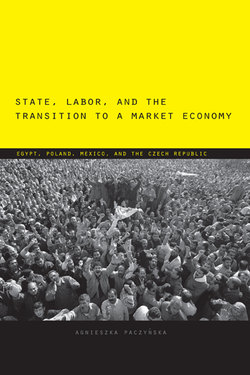Описание книги
In response to mounting debt crises and macroeconomic instability in the 1980s, many countries in the developing world adopted neoliberal policies promoting the unfettered play of market forces and deregulation of the economy and attempted large-scale structural adjustment, including the privatization of public-sector industries. How much influence did various societal groups have on this transition to a market economy, and what explains the variances in interest-group influence across countries? In this book, Agnieszka Paczyńska explores these questions by studying the role of organized labor in the transition process in four countries in different regions—the Czech Republic and Poland in eastern Europe, Egypt in the Middle East, and Mexico in Latin America. In Egypt and Poland, she shows, labor had substantial influence on the process, whereas in the Czech Republic and Mexico it did not. Her explanation highlights the complex relationship between institutional structures and the “critical junctures” provided by economic crises, revealing that the ability of groups like organized labor to wield influence on reform efforts depends to a great extent on not only their current resources (such as financial autonomy and legal prerogatives) but also the historical legacies of their past ties to the state.
